No Plan To Completely Ban Petrol, Diesel Vehicles: Oil Minister

The government has no plans to ban petrol and diesel vehicles in the near future but will continue to push for greater use of electric vehicles with a view to cut oil imports and save the environment, Oil Minister Dharmendra Pradhan said Tuesday.
Conventional energy sources of coal and oil constitute more than 80 per cent of India's energy basket and the demand for energy will continue to grow as the country's economy expands further. "EV is a priority but the incremental requirement of fuel will have to be met through a combination of BS-VI grade petrol and diesel, CNG and biofuels alongside EV," he told reporters on sidelines of an industry event here.
Niti Aayog has reportedly proposed that after 2030, only electric vehicles should be sold in India. A panel headed by Niti Aayog Chief Executive Officer Amitabh Kant had earlier suggested that only EV (three-wheelers and two-wheelers) with an engine capacity of up to 150 cc should be sold from 2025 onwards. The policy think-tank believes that a move to allow only sell EVs from 2030 will expand the scope of the clean fuel technology beyond two-and three-wheelers in the country.
"Is there any government paper that mentions that petrol and diesel vehicles will be banned from a particular date?" Pradhan asked. "India cannot afford to do that." India consumed 211.6 million tonne of petroleum products in 2018-19. Of this, diesel consumption was 83.5 million tonne and petrol 28.3 million tonne. All of the petrol and bulk of diesel is consumed by automobiles, including cars, buses and trucks. Pradhan said transport remains the most demanding sector for oil and such a wide base of automobiles will need a combination of fuels. "We will need CNG, PNG (piped natural gas), biofuels and biogas," he said.
While the country will switch to the usage of ultra-clean BS-VI grade petrol and diesel, meeting emission standards equivalent to euro-VI fuels, from April 1, 2020, the government is aggressively pushing for increased usage of CNG by automobiles particularly in public transport. Even in petrol and diesel, it is mixing sugarcane-extracted ethanol and non-edible oils, respectively, to reduce dependence on conventional oil. Also, biogas generated from city and agriculture waste is being heavily promoted, he said. He also added that India has energy demand that is growing at the fastest rate in the world and no one source can meet it. "It has to be a combination of fuels," he said.
According to the Niti Aayog, 100 per cent EV sale by 2030 can reduce India's import dependence by a big margin. A joint study by the Niti Aayog and Rocky Mountain Institute, USA suggests that India can save 64 per cent of anticipated road-based mobility-related energy demand and 37 per cent of carbon emissions in 2030 by pursuing a shared, electric, and connected mobility future. India is currently 83 per cent dependent on imports to meet its oil needs. Petrol demand is witnessing double-digit growth rate, while diesel demand is rising by 5-6 per cent on the back of increasing automobile base. The country spent USD 112 billion (Rs 7.83 lakh crore) on importing oil in 2018-19 and a part of this can be cut with a complete switch to EVs, according to the Niti Aayog.
Trending News
 1 min readYamaha YZF-R2 Name Trademarked In India
1 min readYamaha YZF-R2 Name Trademarked In India 1 min readTriumph Tracker 400: In Pictures
1 min readTriumph Tracker 400: In Pictures
Latest News
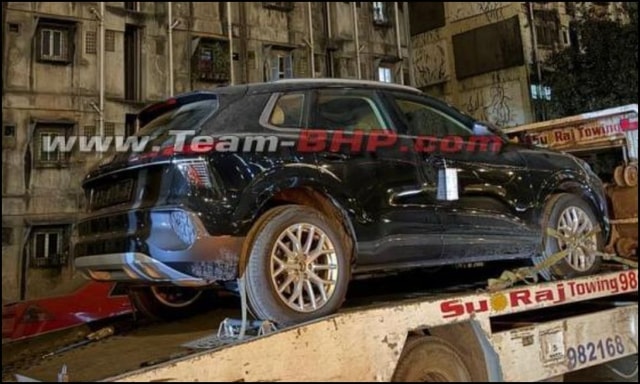 car&bike Team | Dec 19, 2025Next-gen Audi Q3 Spied In India Ahead Of Launch In 2026Third-gen Q3 made its global debut in mid-2025, getting notable tech upgrades and electrified powertrain options.2 mins read
car&bike Team | Dec 19, 2025Next-gen Audi Q3 Spied In India Ahead Of Launch In 2026Third-gen Q3 made its global debut in mid-2025, getting notable tech upgrades and electrified powertrain options.2 mins read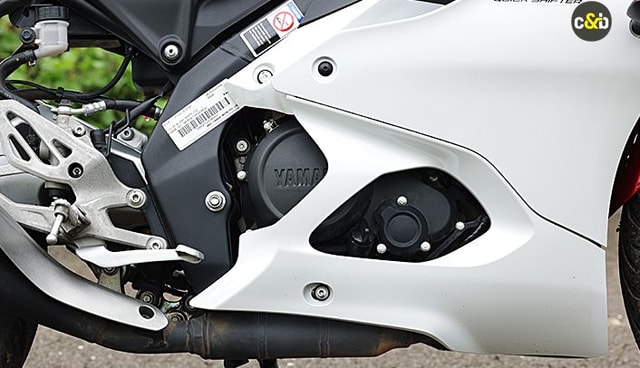 car&bike Team | Dec 19, 2025Yamaha YZF-R2 Name Trademarked In IndiaThe Yamaha R15, one of Yamaha India’s most popular motorcycle models, is likely to continue, even when the R2 finally makes it debut.1 min read
car&bike Team | Dec 19, 2025Yamaha YZF-R2 Name Trademarked In IndiaThe Yamaha R15, one of Yamaha India’s most popular motorcycle models, is likely to continue, even when the R2 finally makes it debut.1 min read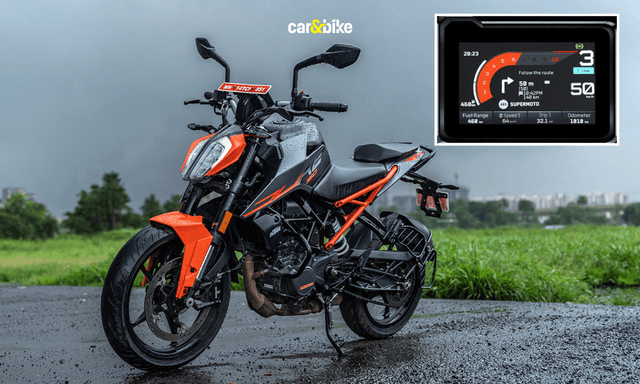 car&bike Team | Dec 18, 2025KTM 160 Duke With TFT Dash launched At Rs 1.79 LakhThe 5-inch colour TFT dash is borrowed from the 390 Duke and is shared across the brand’s sub-400cc lineup.2 mins read
car&bike Team | Dec 18, 2025KTM 160 Duke With TFT Dash launched At Rs 1.79 LakhThe 5-inch colour TFT dash is borrowed from the 390 Duke and is shared across the brand’s sub-400cc lineup.2 mins read car&bike Team | Dec 18, 2025Lamborghini Urus Seized By Cops Following Viral Clip Of Speeding On Bandra-Worli Sea LinkThe car was seized after a video of it allegedly overspeeding on the Bandra–Worli Sea Link, where the speed limit is capped at 80 kmph, went viral.2 mins read
car&bike Team | Dec 18, 2025Lamborghini Urus Seized By Cops Following Viral Clip Of Speeding On Bandra-Worli Sea LinkThe car was seized after a video of it allegedly overspeeding on the Bandra–Worli Sea Link, where the speed limit is capped at 80 kmph, went viral.2 mins read car&bike Team | Dec 18, 20252025 Ducati XDiavel V4 India Launch Details RevealedThe new Ducati XDiavel V4 will be launched towards the end of December 2025 and will sit alongside the standard Ducati Diavel V4.3 mins read
car&bike Team | Dec 18, 20252025 Ducati XDiavel V4 India Launch Details RevealedThe new Ducati XDiavel V4 will be launched towards the end of December 2025 and will sit alongside the standard Ducati Diavel V4.3 mins read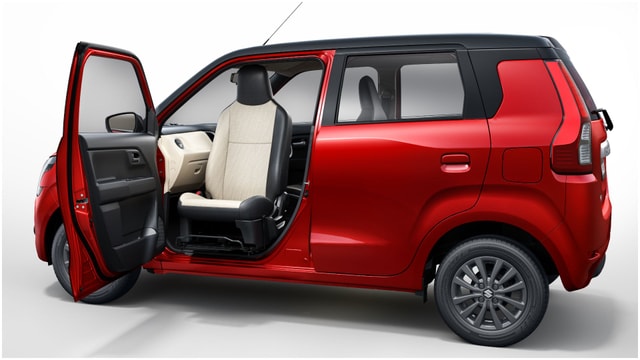 Amaan Ahmed | Dec 18, 2025Maruti WagonR Swivel Front Seat Kit Launched: Check Price, AvailabilityBangalore-based startup TrueAssist Technology Private Limited has developed a mechanism that allows the front passenger seat to swivel outwards, in a bid to improve accessibility for the aged and persons with disabilities.2 mins read
Amaan Ahmed | Dec 18, 2025Maruti WagonR Swivel Front Seat Kit Launched: Check Price, AvailabilityBangalore-based startup TrueAssist Technology Private Limited has developed a mechanism that allows the front passenger seat to swivel outwards, in a bid to improve accessibility for the aged and persons with disabilities.2 mins read
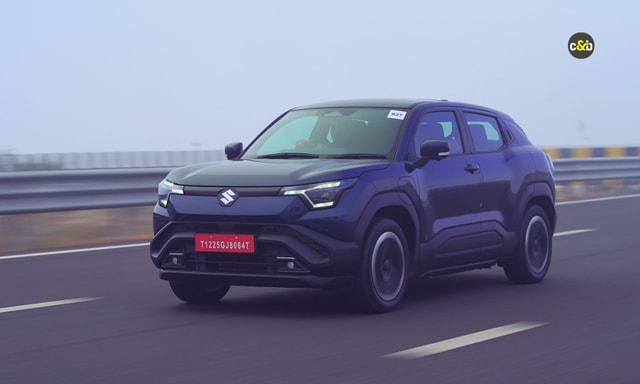 Bilal Firfiray | Dec 19, 2025Maruti Suzuki e-Vitara Review: Worth The Wait?After a long wait, the first-ever electric Maruti Suzuki is here. It’s the e-Vitara, and it comes with a few promises. But arriving this late, is it worth the wait? Or is it a case of too little, too late?9 mins read
Bilal Firfiray | Dec 19, 2025Maruti Suzuki e-Vitara Review: Worth The Wait?After a long wait, the first-ever electric Maruti Suzuki is here. It’s the e-Vitara, and it comes with a few promises. But arriving this late, is it worth the wait? Or is it a case of too little, too late?9 mins read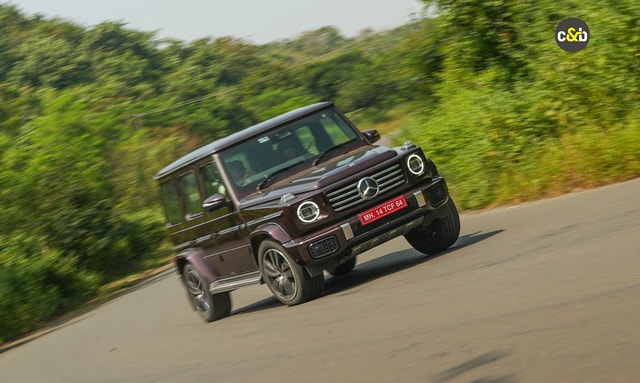 Bilal Firfiray | Dec 18, 2025Mercedes-Benz G450d: The Subtle Power of EvolutionThe Mercedes-Benz G 450d evolves subtly with more power, improved efficiency, and modern tech, while staying true to the timeless G-Class design. And character.4 mins read
Bilal Firfiray | Dec 18, 2025Mercedes-Benz G450d: The Subtle Power of EvolutionThe Mercedes-Benz G 450d evolves subtly with more power, improved efficiency, and modern tech, while staying true to the timeless G-Class design. And character.4 mins read Janak Sorap | Dec 11, 2025Harley-Davidson X440 T First Ride Review: Smarter and SharperHarley-Davidson has taken the X440 and given it a more focused and engaging twist. The result is the X440 T—essentially the same platform but updated in areas that give the motorcycle more appeal and riders more thrill.5 mins read
Janak Sorap | Dec 11, 2025Harley-Davidson X440 T First Ride Review: Smarter and SharperHarley-Davidson has taken the X440 and given it a more focused and engaging twist. The result is the X440 T—essentially the same platform but updated in areas that give the motorcycle more appeal and riders more thrill.5 mins read Shams Raza Naqvi | Dec 10, 20252025 Mini Cooper Convertible Review: More Colour On Indian RoadsThe updated Mini Cooper Convertible is set to be launched in the Indian market in the next few days. We drive it around Jaisalmer for a quick review.5 mins read
Shams Raza Naqvi | Dec 10, 20252025 Mini Cooper Convertible Review: More Colour On Indian RoadsThe updated Mini Cooper Convertible is set to be launched in the Indian market in the next few days. We drive it around Jaisalmer for a quick review.5 mins read Bilal Firfiray | Dec 8, 2025Tata Sierra Review: India’s New Favourite?Marking its return after a few decades, the reborn Sierra has made everyone sit up and take notice. But is it worth the hype?10 mins read
Bilal Firfiray | Dec 8, 2025Tata Sierra Review: India’s New Favourite?Marking its return after a few decades, the reborn Sierra has made everyone sit up and take notice. But is it worth the hype?10 mins read





























































































































